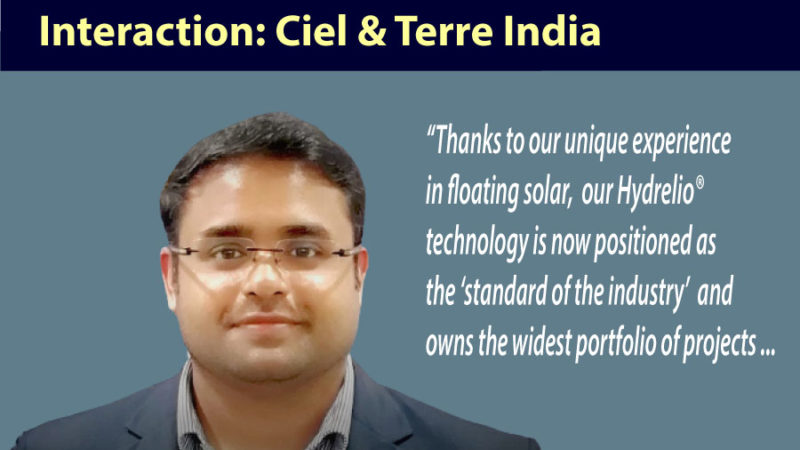Interview – Andrew Hines, Co-Founder – CleanMax Solar

What is your perspective on the Indian solar market? What is your take on India achieving its 100 GW by 2022 solar target?
As India’s leading corporate solar provider, our focus is on the adoption of solar in the corporate segment, in both onsite and open access or group captive power. What determines market growth by corporates is primarily a) economics and b) enabling regulations, such as open access policies and to a lesser extent net metering.
In recent years, we have seen rapid growth in the corporate or commercial & industrial segment, and we have developed a 500 MWp portfolio for this segment. We expect growth to continue in the coming years, and the most important expectations from policymakers and regulators is to provide clear and consistent policies to enable private consumers to adopt renewable energy. There is a role for the central government and regulators, but most of these decisions ultimately are made by the states.
One underappreciated reason for state governments to enact such regulations is to attract corporate investments to India and to individual states. Most corporates today are very serious about contracting large volumes of renewable energy to power their operations. An interesting recent example from Europe is that Scandinavian countries are competing aggressively to court data centers from the likes of Google, Apple, Microsoft and Facebook, and the accessibility of cost-effective, clean energy to these installations is an important element. When tech companies and manufacturers contemplate investments in India and in Asia more broadly, this is an easy differentiator, given that India has the basic regulatory framework in place, and also has abundant solar and wind resources.
Could you throw some light on the impact of imposed safeguard duty on your business as well as the overall solar segment? Can you think of an effective solution that could contribute to the domestic manufacturing?
Since 50-60% of a project’s cost is the modules, any kind of duty will obviously have a direct impact on the tariffs, and therefore on the attractiveness of solar power overall. While government decides whether to tender for additional solar capacity, in the commercial and industrial segment, individual consumers decide whether to adopt solar power. Since cost is the most important driver for them, an increase in cost will inevitably lead to a slowdown of growth in this segment.
Figuring out how to promote PV manufacturing in India is very challenging, given China’s dominance in this segment and the very large scale of manufacturing that is now required to be cost-competitive. Any country working towards this objective needs to take a long-term and holistic approach towards encouraging investment in PV manufacturing. A narrow or a short-term approach such as an import duty will not shift a manufacturer’s decision-making in any significant way.
What are some of the biggest challenges faced by the solar power segment in India? Also could you pin point to the policy and regulatory gaps that need urgent attention in the solar power segment?
In the rooftop section, regulatory conditions can be improved. In the C&I segment, net metering is a significant bottleneck, and removal of arbitrary technical constraints, project caps and other restrictions would certain fuel further growth.
In terms of incentives, these could be more productively redirected to the residential and MSME segments, where they could help to develop those segments, which are practically nonexistant today but have huge potential.
Within open access, the constraint today is more about enabling regulations rather than concessions. While concessions help to make solar or wind power more attractive to consumers, there are several states which don’t allow these projects to get approved at all. This is a significant impediment to renewable energy development in some states. It’s also an impediment to corporate investment in those states, as corporates are increasingly putting a high priority on affordable renewable energy supply for all of their facilities.
What are your views on the current solar tariff levels under prevailing scenario of newly imposed safeguard duties, falling rupee value and uncertainty over GST? Do you feel the falling tariffs will have an impact on the quality of solar projects?
It’s hard to say whether aggressive bidding has an impact on quality. If we assume that bidders and investors are behaving rationally, then it shouldn’t, as they should be making the right cost/quality tradeoff decisions regardless of the tariff. But in reality, poor economics in a project can drive people to cut corners.
However, in a professional organization, there should be controls in place to prevent this from happening, as it is not in the best interest of the company to do so.








